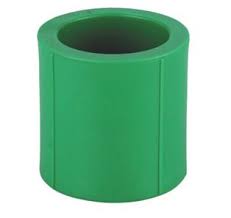Jul . 26, 2024 19:59 Back to list
Exploring the Benefits and Applications of PVC Pipes in Modern Construction and Infrastructure Projects
The Versatility and Reliability of PVC Pipes in Modern Plumbing and Construction
Polyvinyl Chloride (PVC) pipes have become a fundamental component in the fields of plumbing, construction, and various industrial applications. Known for their durability, resistance to corrosion, and affordability, PVC pipes have revolutionized how we approach piping systems. This article explores the benefits, applications, and considerations regarding the use of PVC pipes in service delivery.
One of the standout features of PVC pipes is their resistance to corrosion, making them an excellent choice for transporting water and other fluids. Unlike metal pipes that can rust or corrode over time, PVC maintains its integrity and functionality even in harsh environments. This quality extends the lifespan of plumbing systems, reducing the need for frequent replacements and maintenance—a cost-effective solution for both residential and commercial applications.
The Versatility and Reliability of PVC Pipes in Modern Plumbing and Construction
In terms of versatility, PVC pipes are used in a variety of applications beyond traditional plumbing. They are common in drainage systems, irrigation projects, and sewer systems. The smooth internal surface of PVC minimizes friction, allowing fluids to flow easily, which is essential for maintaining efficient drainage and reducing the risk of blockages. Additionally, various fittings and connectors are available, enabling seamless integration into existing systems or accommodating complex layouts in new constructions.
pvc pipes service

Another critical aspect to consider is the environmental impact of PVC pipes. Although some criticisms have been directed toward the production of PVC due to the chemicals involved in its manufacture, advancements in technology and recycling processes are helping to mitigate these concerns. Many manufacturers are now focused on sustainable practices, producing recyclable PVC that can be repurposed at the end of its life cycle. Using PVC pipes can also lead to water conservation; models designed specifically for irrigation can minimize waste, thus promoting responsible water use.
While the advantages of PVC pipes are numerous, it is essential to recognize some limitations. PVC can become brittle at extremely low temperatures and may not be suitable for high-temperature applications, such as hot water pipes. Additionally, unprotected PVC exposed to prolonged sunlight can degrade. It is essential to ensure proper installation techniques that include protective measures to counteract potential weaknesses.
Furthermore, regulatory compliance is paramount when utilizing PVC in construction and plumbing. Local codes and standards must be followed to ensure safety and effectiveness. Always consulting with professionals regarding the specific requirements and limitations of PVC use in your area can prevent future complications.
In conclusion, PVC pipes represent a modern, efficient, and versatile solution for various piping needs. Their advantages, such as durability, cost-effectiveness, and ease of installation, overshadow potential drawbacks. In an era where resource conservation and environmental sustainability are increasingly crucial, the continued innovation and responsible use of PVC can contribute to successful infrastructure that meets modern demands. As industries evolve, so too will the applications and improvements surrounding PVC pipes, solidifying their role as an indispensable component in plumbing and construction services.
-
High-Quality PVC Borehole Pipes Durable & Versatile Pipe Solutions
NewsJul.08,2025
-
High-Quality PVC Perforated Pipes for Efficient Drainage Leading Manufacturers & Factories
NewsJul.08,2025
-
High-Quality PVC Borehole Pipes Durable Pipe Solutions by Leading Manufacturer
NewsJul.08,2025
-
High-Quality PVC Borehole Pipes Reliable PVC Pipe Manufacturer Solutions
NewsJul.07,2025
-
High-Quality UPVC Drain Pipes Durable HDPE & Drain Pipe Solutions
NewsJul.07,2025
-
High-Quality Conduit Pipes & HDPE Conduit Fittings Manufacturer Reliable Factory Supply
NewsJul.06,2025

